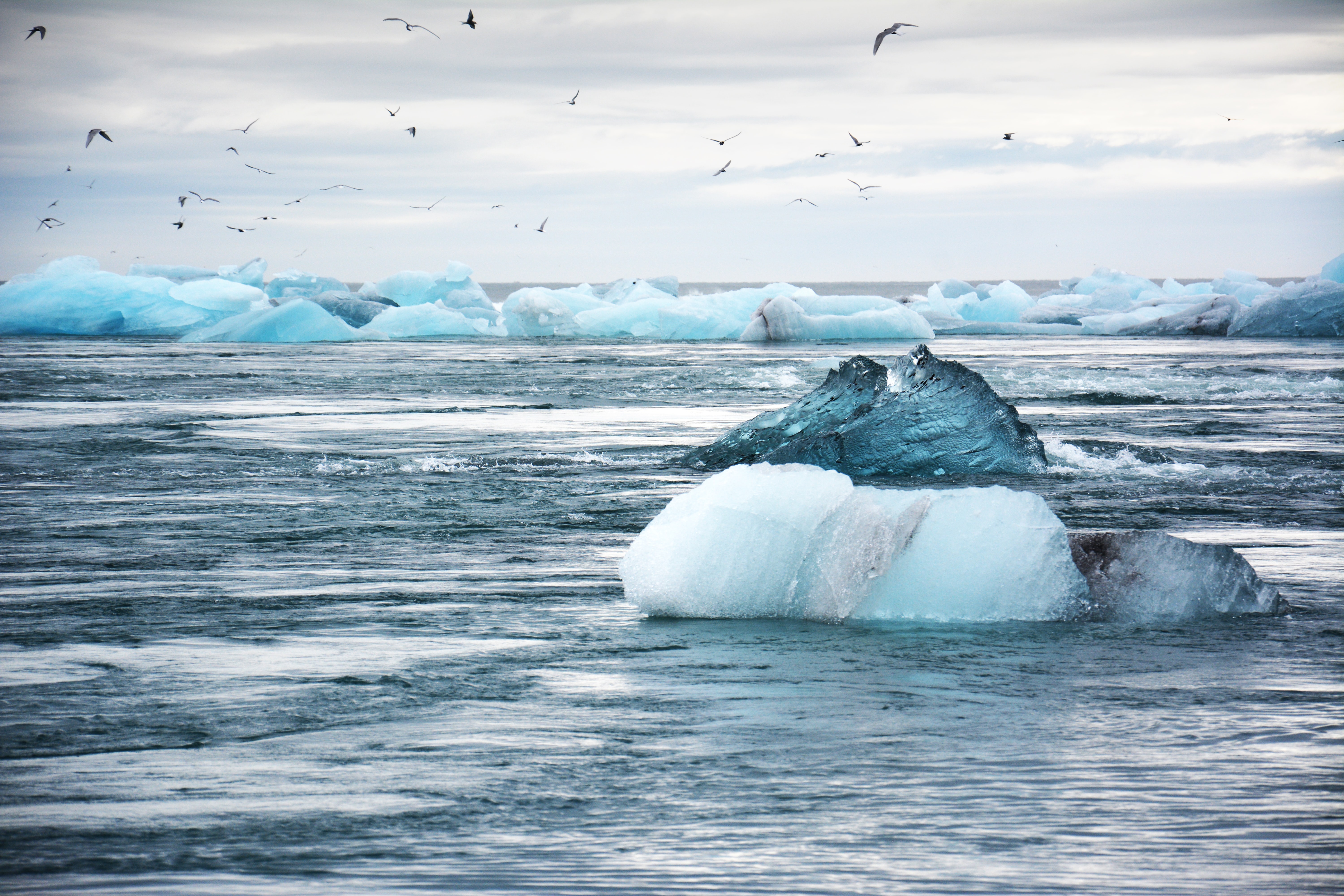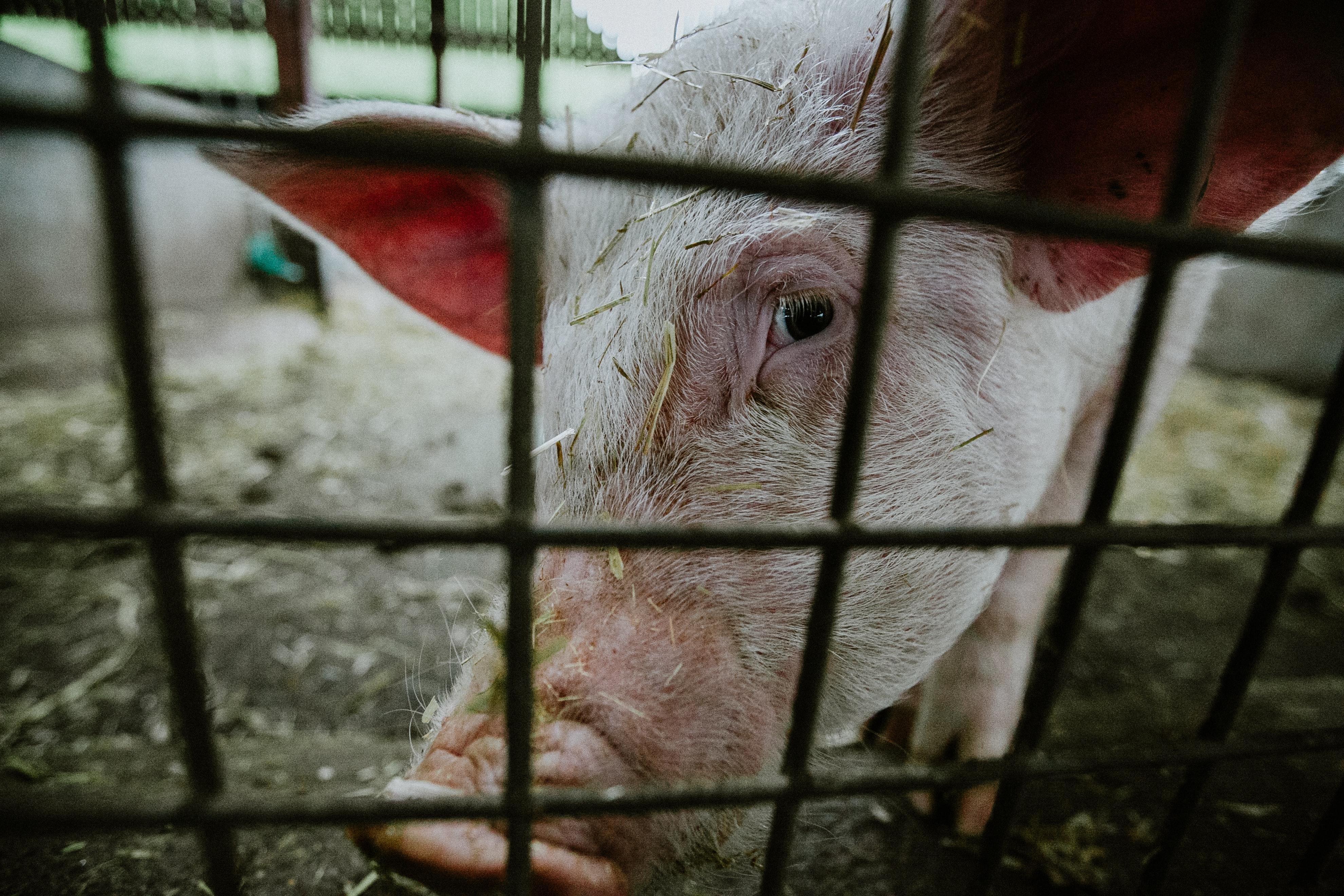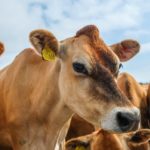Dr Philip J. Sampson FOCAE, writer and lecturer on animals and animal ethics explores the impact of climate change, the benefits of plant-based diets in reducing greenhouse gas emissions and why Christians should be concerned about species extinction.
Climate change and injustice
The impacts of climate change on humans are well known, as is the fact that the greatest impact will be on the poorest people. This alone makes climate change important; but if we believe that the ‘earth is the Lords and everything in it’, it is especially important for Christians.
The impact of climate change on the human community is wide ranging in its injustice. Low-lying areas such as in India and Bangladesh will be most affected by sea level rise; changes in land fertility will redistribute food even more unjustly from the developing world to the rich, with nearly 90% of the world’s population suffering from a reduced diet; by contrast only about 2.5% will experience an increase in food production. Water shortages are expected, and will be a major driver of intra-social violence, war, and population migrations. According to an Oxfam study, climate change is already a bigger source of human displacement than conflict. But climate change is also bad news for non-human animals.
 We have all seen pictures of polar bears stranded as their preferred habitat of Arctic sea ice melts, but this is the tip of an iceberg which, ironically, is growing not melting. The recent Australian wild-fires burnt more than a billion animals to death; floods and droughts destroy animal habitats, starving the survivors. Every creature from mammal to insect, from bird to amphibian is affected; unlike humans most cannot move to safety from fire or drought, nor can they relocate once their habitat is destroyed.
We have all seen pictures of polar bears stranded as their preferred habitat of Arctic sea ice melts, but this is the tip of an iceberg which, ironically, is growing not melting. The recent Australian wild-fires burnt more than a billion animals to death; floods and droughts destroy animal habitats, starving the survivors. Every creature from mammal to insect, from bird to amphibian is affected; unlike humans most cannot move to safety from fire or drought, nor can they relocate once their habitat is destroyed.
These events reflect changes that are occurring too quickly for species to adapt on a neo-Darwinian model, leading them to become extinct faster than we can classify them. The anticipated minimum rise of 2 degrees Celsius in global average temperature above preindustrial levels is expected to lead to the complete extinction of about a third of all species. Sometimes extinction occurs immediately through loss of habitat or prey animals. Sometimes the impact on animal populations is indirect. The increasingly early onset of spring disturbs the delicate balance between chicks hatching and insect populations recovering from winter lows; the chicks starve. Sea-water acidification makes it harder for organisms to build shells, scales and skeletons as the available calcium becomes depleted. Oceanic warming is destroying coral with a knock-on effect for the huge fish populations which shelter and feed there.
Changes in seasonal temperatures cause animal population shifts with unpredictable and largely unknown consequences, impacting entire species. Many of these changes affect whole eco-systems, of which humans are a part. Marine life is twice as sensitive to climate change as land animals. In 2019, a UN report warned that about one million species are threatened with extinction as a result of coral bleaching due to climate change. Up to one million people depend directly on coral for their livelihoods; others benefit from associated fisheries and the breaking of storm surges. Many of these people are poor. Insects pollinate three quarters of crops eaten by humans, and many insect populations are facing catastrophic collapse; the rich will find work-arounds, the poor are less able to do so. Recent research has revealed the vulnerability of the humble earthworm to climate change; almost all sustainable human agriculture relies upon earthworms. Humans have interacted with animals for survival throughout history, and the impacts have usually been mutual and obvious. However, in modernity, animals have become increasingly hidden from view, and the mutual impacts invisible; we do not notice what we are doing to them or what our doing to them does to us. The knock-on effects for humans are largely unknown and have been, as yet, almost entirely neglected.
The impact of these effects has momentum, and is hard to stop. For example, ice sheets will take a long time to stop responding to temperature change – on a scale of a century or so – with a corresponding continued velocity of sea level rise. It will be several generations before we know whether an animal population will recover or become extinct. Eco-systems take many years to adjust to changes – or to collapse.
 Animals, human and non-human, suffer and die as a result of climate change. But non-human animals also suffer and die in the generation of climate change. The industrial meat industry is the single greatest contributor to green house gas emissions (GHGs), larger than all transport by land, sea and air combined. This is not some ‘fault’ in the animals which clever science can fix, but is the result of a meat industry which breeds and kills more than 50 billion land animals a year, largely indifferent to the consequences for God’s creation. Humans are responsible for this, not the animals who suffer. Scientists have long known about the role of the meat industry in climate change; the IPCC, the World Resources Institute, and the United Nations Food and Agriculture Organisation all recommend reducing meat consumption in order to meet climate change targets. This would also alleviate the known risks arising from climate change, such as drought, famine, conflict and deforestation. A 2020 Oxford University study found that a meat-free diet would avoid 8.1 million premature deaths per year by 2050, not including those due to new viruses emerging from the meat industry; it would also cut food-related GHG emissions by 70%. A plant-based diet is a small step for the individual, but a giant leap for our care of creation.
Animals, human and non-human, suffer and die as a result of climate change. But non-human animals also suffer and die in the generation of climate change. The industrial meat industry is the single greatest contributor to green house gas emissions (GHGs), larger than all transport by land, sea and air combined. This is not some ‘fault’ in the animals which clever science can fix, but is the result of a meat industry which breeds and kills more than 50 billion land animals a year, largely indifferent to the consequences for God’s creation. Humans are responsible for this, not the animals who suffer. Scientists have long known about the role of the meat industry in climate change; the IPCC, the World Resources Institute, and the United Nations Food and Agriculture Organisation all recommend reducing meat consumption in order to meet climate change targets. This would also alleviate the known risks arising from climate change, such as drought, famine, conflict and deforestation. A 2020 Oxford University study found that a meat-free diet would avoid 8.1 million premature deaths per year by 2050, not including those due to new viruses emerging from the meat industry; it would also cut food-related GHG emissions by 70%. A plant-based diet is a small step for the individual, but a giant leap for our care of creation.
The gospel is good news for animals.
But why does it matter if animals suffer or species go extinct? Most of us only see the majority of animal species at second hand, usually on a screen, and could continue to do so even if none actually existed in reality. Admittedly we would need to preserve some species if we wanted to eat their bodies as well as look at them, but who cares if the only emperor penguins, or tigers are digital? There is an obvious failure of imagination in such a view, but then some who favour an exploitative view of dominion lack imagination. The more profound reason to care is that animals are not ours[1]. The earth is the Lord’s and everything in it (Ex. 9.29, Deut. 10.14, Ps. 24.1 etc.). As Richard Baxter put it in the seventeenth century, animals are a ‘love-token from our dearest friend’; what lover is indifferent when their love-token is trampled under foot?[2]
Despite the prevalent view that the world is ours to consume as we wish, God created it ‘for the manifestation of the glory of His eternal power, wisdom, and goodness’ (Westminster Confession 1647, 2.2 & 4.1). As the song says, ‘with all creation I sing, praise to the King of kings’. We may, says Robert Bolton, read in ‘this great book of nature… the large characters of kindness and love which His merciful and munificent hand hath left in every page and line of it’. Obviously the animals which we have driven to extinction cannot manifest God or praise Him. The story we read in a factory farm is anything but kindness, love and mercy. A food animal screaming in agony is not singing praises to the King of kings. Only demons rejoice at such sounds. So, is the gospel Good News for animals?
We currently consume the world as though there were no tomorrow. This is not new. The Fall was occasioned by an act of over-consumption – eating something which was not ours to eat. The gospel of Christ witnesses that the purpose of creation is not to serve the idol of consumption, but to praise God, and to declare His glory.
Many Protestants before the twentieth century were remarkably modern in emphasising the harmony of creation in its praise of God; what we would now call an ‘ecological’ view. All creatures sing in the ‘harmony of their obedience to God’ (Rev. Thomas Adams 1629). If we ‘destroy any one species of God’s creatures, though it were but the species of toads and spiders,… this were to take away one note of his harmony’ (John Bulwer, 1653). Where climate change destroys the delicate and subtle balance of nature, the gospel celebrates hope in the restoration of harmony (Rom 8.21-2). Moreover, as Jesus tells us, God cares not only for the harmony of species singing together, but for each individual animal’s voice, even the sparrows which we hold in contempt at ten a penny (Matt. 10.29). Where the meat industry cruelly exploits God’s creatures to feed what Paul calls the belly god (Phil. 3.19), the gospel rejects animal cruelty as wickedness incompatible with living a righteous life (Prov.12.10).
In all this, Jesus is our guide. Jesus incarnates the Righteous One (Acts 3.14, 7.52, 1John 2.1, etc.), and wise King Solomon tells us that the righteous man is kind to animals (Prov.12.10). As we read through the gospels, we find many examples of Jesus’ kindness to animals[3]. As in Christ we are made righteous, shouldn’t we also reject the wickedness of cruelty to animals?
 Most people recognise that a parent sacrificing themselves for their child, or a doctor for their patient, is an admirable thing to do. Some even extend this to their neighbour, judging that the stronger should sacrifice themselves for the weaker. But the world’s more common pattern is for the powerful to sacrifice the weak because they can. Jesus upended this pattern, teaching his followers that the strong should serve the weak, and put the interests of their neighbour before their own. In the past, many Protestants chose to follow this teaching in their treatment of animals as well as humans. For example, in the 1870s, the evangelical Anglican, Lord Shaftesbury, followed Jesus’ radical example of the strong sacrificing their interests for the weak. He opposed the cruelties of the vivisection of animals, even if it brought advantages to the vivisector. Christians, then, should not baulk at making a dietary “sacrifice” so that God’s creation can praise Him. However, there is no reason why this should carry any weight outside the Christian community. Of course, for some ethically caring people, whether Christian or not, the suffering of the animal requires that we sacrifice our desire to eat them; but generally the craving for meat wins out (Num 11.4&31-34). So, it is probably more effective to emphasise that plant-based foods are not only better for animals, but also for the environment and for our health. The latter weighs particularly heavily with most people. After all, most of the new viruses, from bird-flu to swine flu, originated in the meat industry. The coronavirus (COVID 19) pandemic of 2020 is just the latest example of humans disrupting the harmony of praise with serious consequences for ourselves as well as the animals; more new viruses are predicted unless we relent in our cruelties to God’s creatures (Num 11).[4]
Most people recognise that a parent sacrificing themselves for their child, or a doctor for their patient, is an admirable thing to do. Some even extend this to their neighbour, judging that the stronger should sacrifice themselves for the weaker. But the world’s more common pattern is for the powerful to sacrifice the weak because they can. Jesus upended this pattern, teaching his followers that the strong should serve the weak, and put the interests of their neighbour before their own. In the past, many Protestants chose to follow this teaching in their treatment of animals as well as humans. For example, in the 1870s, the evangelical Anglican, Lord Shaftesbury, followed Jesus’ radical example of the strong sacrificing their interests for the weak. He opposed the cruelties of the vivisection of animals, even if it brought advantages to the vivisector. Christians, then, should not baulk at making a dietary “sacrifice” so that God’s creation can praise Him. However, there is no reason why this should carry any weight outside the Christian community. Of course, for some ethically caring people, whether Christian or not, the suffering of the animal requires that we sacrifice our desire to eat them; but generally the craving for meat wins out (Num 11.4&31-34). So, it is probably more effective to emphasise that plant-based foods are not only better for animals, but also for the environment and for our health. The latter weighs particularly heavily with most people. After all, most of the new viruses, from bird-flu to swine flu, originated in the meat industry. The coronavirus (COVID 19) pandemic of 2020 is just the latest example of humans disrupting the harmony of praise with serious consequences for ourselves as well as the animals; more new viruses are predicted unless we relent in our cruelties to God’s creatures (Num 11).[4]
Jesus prayed ‘forgive them for they know not what they do’ (Lk. 23.34). This is usually read to mean they did not know that they were crucifying the Redeemer of world. But perhaps Jesus also meant that they were blind to the idol they were following in doing what they did – that they were serving the idolatrous Roman celebration of cruelty and violence, the kingdom of darkness rather than the kingdom of God. The Roman empire is long gone, but the modern world has its own cruelties, its own idols of exploitation and abuse. We cruelly consume animals, not because we don’t know the reality of what we do, but because we do not see the unreal idol of consumption for what it is. If, with Richard Baxter, we called animals ‘love-tokens’ and not ‘live-stock’, surely it would change the way we treat them. The most effective single initiative against climate change, and incidentally against new viral diseases, is to join the psalmist’s call for all creation to praise the God from whom all blessings flow, and to behave as though we meant it (Ps 96, 98, 148 etc.).
Dr Philip J. Sampson FOCAE is a writer and lecturer on animals and animal ethics.
His new book Animal Ethics and the Nonconformist Conscience by Palgrave Macmillan is available in downloadable and hardback editions.
[1] S. Withrow King (2016) Animals are not ours Cascade: Oregon.
[2] Note that some of the quotations below have been shortened and modernised.
[3] Sampson, Philip. 2018. Animal Ethics and the Nonconformist Conscience. Palgrave Macmillan ch. 5-7. https://www.palgrave.com/us/book/9783319964058
https://www.oxfordanimalethics.com/2020/03/press-release-stopping-animal-abuse-will-prevent-future-pandemics-says-leading-scientist




